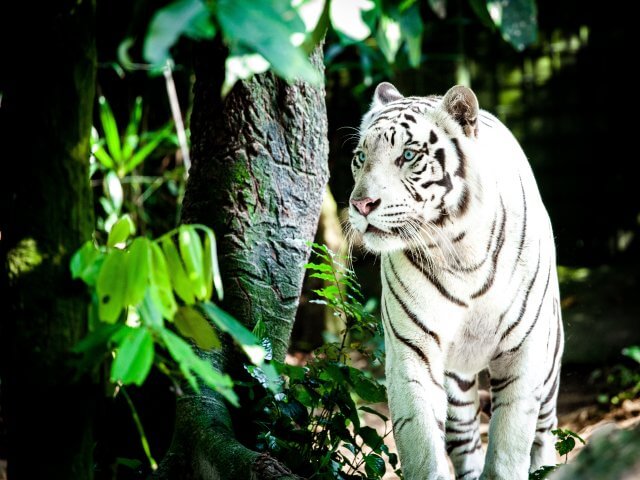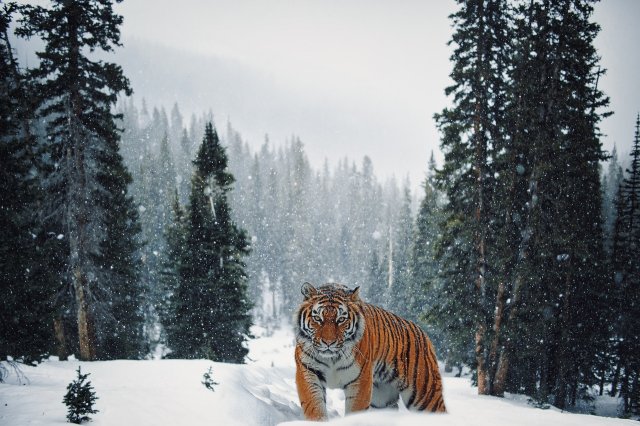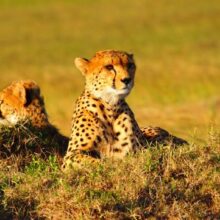How can individuals make a positive impact on World Wildlife Day
World Wildlife Day
World Wildlife Day is celebrated on March 3rd every year to raise awareness about the importance of wildlife conservation and the need to protect endangered species. It is a day to reflect on the impact of human activities on the natural world and to take action to preserve biodiversity. While governments and organizations play a crucial role in wildlife conservation, individuals also have the power to make a positive impact. In this article, we will explore various ways in which individuals can contribute to the protection of wildlife.
1. Educate Yourself and Others
One of the first steps individuals can take to make a positive impact on World Wildlife Day is to educate themselves about the importance of wildlife conservation. Understanding the threats faced by different species and ecosystems can help individuals make informed decisions and take appropriate actions. There are numerous resources available, such as documentaries, books, and online articles, that provide valuable insights into the world of wildlife.
Once you have educated yourself, it is important to share your knowledge with others. By raising awareness among your friends, family, and community, you can inspire more people to take action and make a difference. You can organize educational events, give presentations, or simply have conversations to spread the message of wildlife conservation.
2. Support Conservation Organizations
World Wildlife Day: Conservation organizations play a vital role in protecting wildlife and their habitats. By supporting these organizations financially or through volunteering, individuals can contribute directly to conservation efforts. Many organizations offer membership programs that provide various benefits, such as access to exclusive events or publications. By becoming a member, you not only support their work but also stay updated on the latest conservation initiatives.
Volunteering is another way to make a positive impact. Many conservation organizations rely on volunteers for activities such as habitat restoration, wildlife monitoring, and public outreach. By dedicating your time and skills, you can actively contribute to conservation projects and make a tangible difference in the lives of endangered species.
3. Make Sustainable Choices
Our daily choices and actions have a significant impact on the environment and wildlife. By making sustainable choices, individuals can reduce their ecological footprint and contribute to the conservation of natural resources. Here are some examples:
- Reduce, reuse, and recycle: By minimizing waste and recycling materials, we can reduce the demand for raw materials and the energy required for their extraction.
- Conserve water: Water scarcity is a major issue in many regions, and wildlife depends on freshwater ecosystems. By conserving water at home and supporting water conservation initiatives, individuals can help protect these vital habitats.
- Choose sustainable products: When purchasing products, look for certifications such as Fairtrade, Rainforest Alliance, or Forest Stewardship Council (FSC) that ensure the products are produced sustainably and do not harm wildlife or their habitats.
- Eat sustainably: The food choices we make can have a significant impact on wildlife. By reducing meat consumption, choosing sustainably sourced seafood, and supporting local and organic farmers, individuals can contribute to reducing habitat destruction and pollution caused by intensive agriculture.
4. Create Wildlife-friendly Spaces
Individuals can make a positive impact on World Wildlife Day by creating wildlife-friendly spaces in their own homes and communities. Here are some ideas:
- Plant native species: Native plants provide food and shelter for local wildlife. By planting native species in your garden or community spaces, you can attract birds, butterflies, and other beneficial insects.
- Provide water sources: Installing bird baths or small ponds can provide water for birds and other animals, especially during dry periods.
- Reduce pesticide use: Pesticides can harm wildlife, including beneficial insects and pollinators. By reducing or eliminating pesticide use, individuals can create a safer environment for wildlife.
- Build wildlife habitats: Installing birdhouses, bat boxes, or bee hotels can provide nesting sites for these species and contribute to their conservation.
5. Engage in Citizen Science
Citizen science projects allow individuals to contribute to scientific research and conservation efforts. By participating in these projects, individuals can help collect valuable data on wildlife populations, migration patterns, and habitat conditions. This data is used by scientists and conservationists to make informed decisions and develop effective conservation strategies.
There are numerous citizen science initiatives available, ranging from bird counting programs to monitoring marine ecosystems. By joining these projects, individuals can actively contribute to wildlife conservation while learning more about the natural world.
Summary
World Wildlife Day provides an opportunity for individuals to reflect on the importance of wildlife conservation and take action to protect endangered species. By educating themselves and others, supporting conservation organizations, making sustainable choices, creating wildlife-friendly spaces, and engaging in citizen science, individuals can make a positive impact on World Wildlife Day and contribute to the long-term survival of our planet’s biodiversity. Remember, every small action counts, and together we can make a difference.
Discover the Untamed Beauty of Big Cats: Explore the Enchanting Stories of Big Cat Rescue





